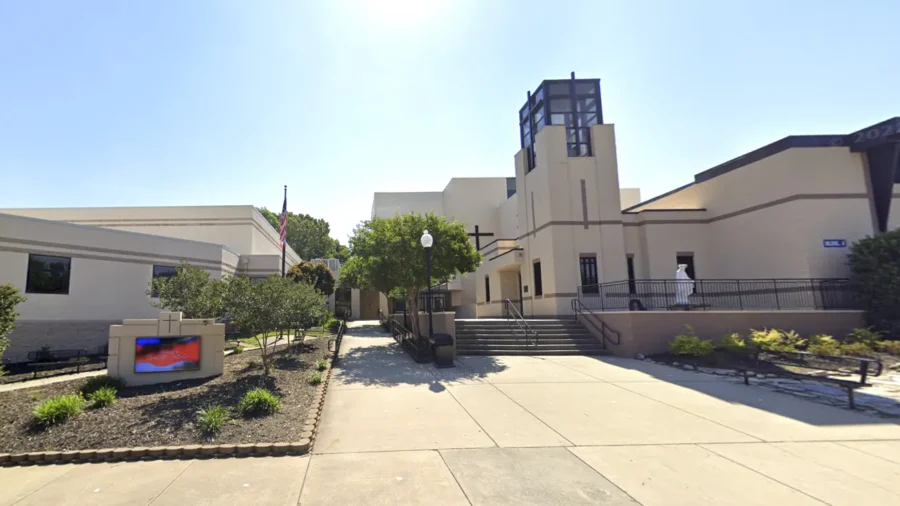A federal appeals court ruled on May 8 that the firing of a gay teacher from a North Carolina Catholic school was not in violation of federal workplace protections on discriminatory grounds, reversing a previous ruling from 2021.
The teacher, Lonnie Billard, was fired in 2014 after he publicly announced his engagement to his partner.
The school said Mr. Billard wasn’t invited back to Charlotte Catholic High School as a substitute teacher because of his “advocacy in favor of a position that is opposed to what the church teaches about marriage,” a court document stated.
A three-judge panel of the Fourth Circuit Court of Appeals ruled that the school was not in violation of Title VII of the Civil Rights Act of 1964, which offers discrimination protection based on race, sex, and religious affiliation, and instead adhered to the “ministerial exception to Title VII.”
“We conclude that the school entrusted Billard with ‘vital religious duties,’ making him a ‘messenger’ of its faith and placing him within the ministerial exception,” Circuit Judge Pamela Harris wrote in the majority decision.
Under the First Amendment, religious organizations have the right to select those who “personify its beliefs” as employees, and who will then help the organization “shape its own faith and mission.” This allows such organizations—including schools—to employ those who conduct themselves in line with its values, and is a process that is “free from interference from civil authorities.” This is referred to as a ministerial exception.
According to two members of the judicial panel, Mr. Billard “played a vital role as a messenger” of Charlotte Catholic High School’s faith values, which made the termination of his employment permissible under the law.
The third panel member offered partial dissent, saying he would have offered a different resolution to the case, but ultimately concurred with the majority decision.
‘Religious Schools Need Not Flinch’
“This is a heartbreaking decision for our client who wanted nothing more than the freedom to perform his duties as an educator without hiding who he is or who he loves,” read a joint statement from the American Civil Liberties Union, the ACLU of North Carolina, and Charlotte law firm Tin Fulton Walker & Owen, which represented Mr. Billard.
“Every worker should be entitled to equal protection under the law, and the Supreme Court held as recently as 2020 that this fundamental freedom extends to LGBTQ workers,” the ACLU said.
Luke Goodrich, an attorney for the Becket Fund for Religious Liberty, which defended the Charlotte diocese, praised the decision as “a victory for people of all faiths who cherish the freedom to pass on their faith to the next generation.”
“The Supreme Court has been crystal clear on this issue: Catholic schools have the freedom to choose teachers who fully support Catholic teaching,” Mr. Goodrich said.
The diocese operates 20 schools across western North Carolina. “Many of our parents work long hours and make significant sacrifices so their children can attend our schools and receive a faithful Catholic education,” said Diocesan assistant superintendent, Allana-Rae Ramkissoon. “That’s because we inspire our students not only to harness the lessons and tools they need to thrive, but to cherish their faith as a precious gift from God.”
“The Religion Clauses of the First Amendment keep government—including courts—out of the hiring decisions of churches for key positions, including positions in religious schools,” said Andrea Picciotti-Bayer, director of the Conscience Project, in a statement to The Epoch Times. “Respecting such autonomy was even contemplated by the Supreme Court in its infamous Bostock decision. Religious schools need not flinch. The Constitution and many members in the federal judiciary have their backs.”
‘Vital Role’ in School’s Mission
Mr. Billard started working as a substitute teacher at Charlotte Catholic High School in the spring of 2001, taking on a permanent role the following year, documents showed.
He later returned to substitute teaching in 2012. During his time as a full-time teacher, Mr. Billard mainly taught drama. As a substitute he primarily taught English, although he occasionally substituted for teachers of religion classes.
According to Mr. Billard, he announced his engagement to his partner on social media in October 2014, which, he said, led to termination of his employment two months later. The now retired teacher married his partner in 2015.
Following the termination of his contract, he filed a discrimination complaint with the EEOC, followed by an employment discrimination lawsuit in 2017 against the school, as well as Mecklenburg Area Catholic Schools and the Roman Catholic Diocese of Charlotte.


